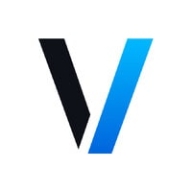

Veracode and CodeSonar are both popular static analysis tools in the cybersecurity landscape. Veracode seems to have the upper hand in support and pricing, while CodeSonar is notable for its advanced features.
Features: Veracode is known for its broad spectrum of application security testing features, ease of scanning capabilities, and user-friendly interface. CodeSonar offers deep integration with development environments, sophisticated analysis, and customized analysis options.
Room for Improvement: Veracode could enhance reporting flexibility, reduce false positives, and update its documentation. CodeSonar could implement modern integrations, improve its UI, and shorten setup time.
Ease of Deployment and Customer Service: Veracode shines with straightforward deployment and responsive customer service, making integration smoother. CodeSonar requires a more involved initial setup due to its detailed configuration yet offers valuable support during this process.
Pricing and ROI: Veracode offers competitive pricing with quick ROI, targeting budget-conscious users. CodeSonar, with a higher upfront investment, provides tangible benefits for complex projects, serving users seeking long-term value in detailed analysis.
| Product | Market Share (%) |
|---|---|
| Veracode | 5.4% |
| CodeSonar | 1.2% |
| Other | 93.4% |

| Company Size | Count |
|---|---|
| Small Business | 5 |
| Midsize Enterprise | 1 |
| Large Enterprise | 2 |
| Company Size | Count |
|---|---|
| Small Business | 69 |
| Midsize Enterprise | 44 |
| Large Enterprise | 115 |
GrammaTech enables organizations to develop software applications more efficiently, on-budget, and on-schedule by helping to eliminate harmful defects that can cause system failures, enable data breaches, and ultimately increase corporate liabilities in today’s connected world. GrammaTech is the developer of CodeSonar, the most powerful source and binary code analysis solution available today. Extraordinarily precise, CodeSonar finds, on average, 2 times more serious defects in software than other static analysis solutions. Designed for organizations with zero tolerance for defects and vulnerabilities in their applications, CodeSonar provides static analysis for applications where reliability and security are paramount - widely used by software developers in avionics, medical, automotive, industrial control, and other mission-critical applications. Some of GrammaTech's customers include Toyota, GE, Hyundai, Kawasaki, LG, Lockheed Martin, NASA, Northrop Grumman, Panasonic, and Samsung.
Veracode is a leading provider of application security solutions, offering tools to identify, mitigate, and prevent vulnerabilities across the software development lifecycle. Its cloud-based platform integrates security into DevOps workflows, helping organizations ensure that their code remains secure and compliant with industry standards.
Veracode supports multiple application security testing types, including static analysis (SAST), dynamic analysis (DAST), software composition analysis (SCA), and manual penetration testing. These tools are designed to help developers detect vulnerabilities early in development while maintaining speed in deployment. Veracode also emphasizes scalability, offering features for enterprises that manage a large number of applications across different teams. Its robust reporting and analytics capabilities allow organizations to continuously monitor their security posture and track progress toward remediation.
What are the key features of Veracode?
What benefits should users consider in Veracode reviews?
Veracode is widely adopted in industries like finance, healthcare, and government, where compliance and security are critical. It helps these organizations maintain strict security standards while enabling rapid development through its integration with Agile and DevOps methodologies.
Veracode helps businesses secure their applications efficiently, ensuring they can deliver safe and compliant software at scale.
We monitor all Application Security Tools reviews to prevent fraudulent reviews and keep review quality high. We do not post reviews by company employees or direct competitors. We validate each review for authenticity via cross-reference with LinkedIn, and personal follow-up with the reviewer when necessary.